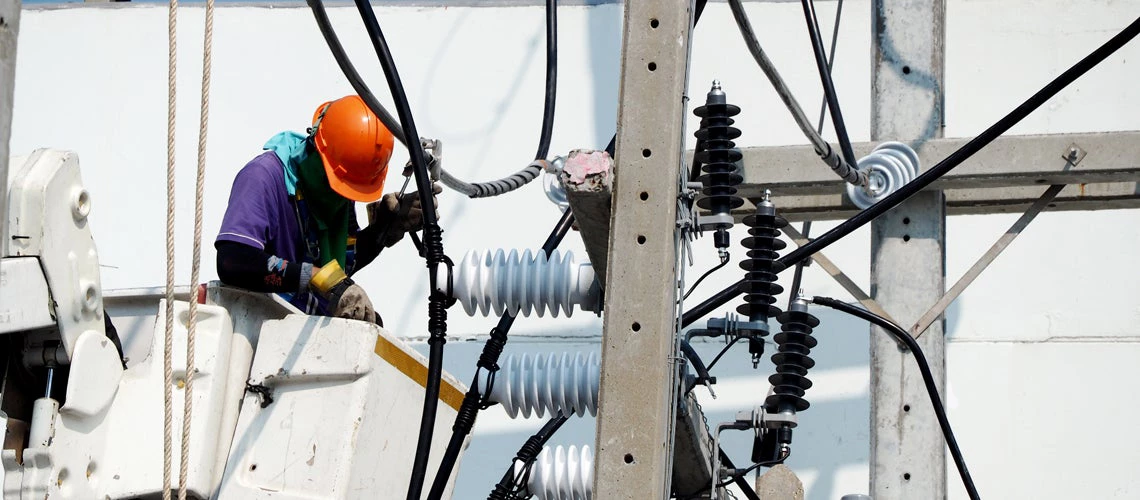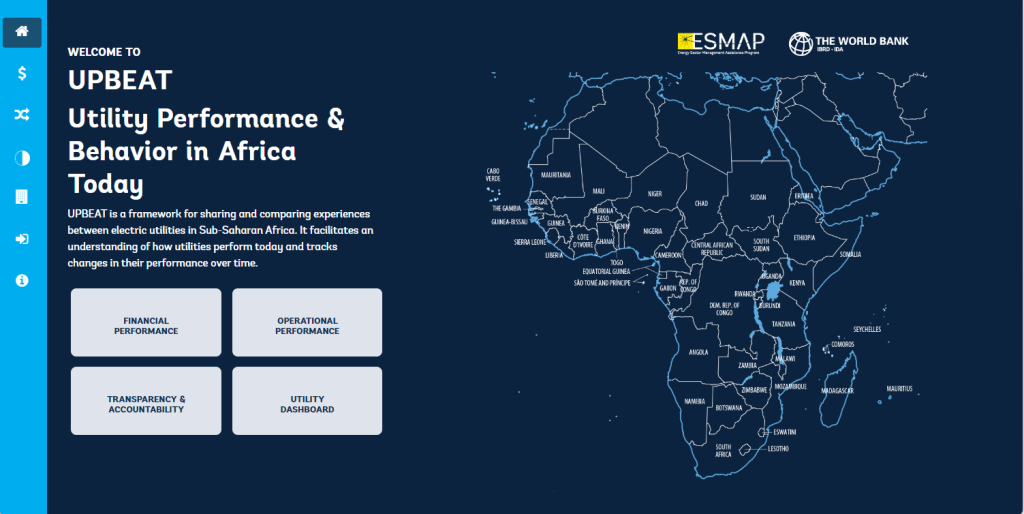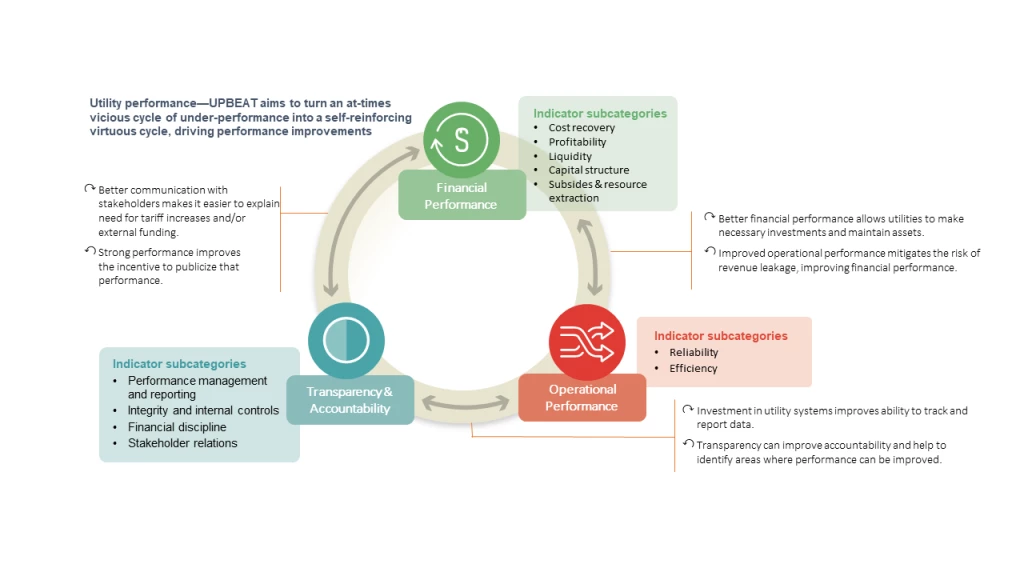 High voltage power line maintenance
High voltage power line maintenance
Electric utilities, governments, investors, and other stakeholders in Africa’s power sector now have a tool to measure, monitor, and share utility performance data. The Utility Performance and Behavior in Africa Today initiative, or UPBEAT, launched an interactive web-based utility data platform that measures and tracks the performance of African electric utilities.
Electric utilities are critical for ensuring access to affordable, reliable, sustainable, and modern energy for all. They generate, transmit, and distribute the electricity that lights up homes, powers businesses, and plays a crucial role in building modern economies and mitigating climate impacts.
But across Africa, only one in three power utilities is recovering its operating and debt service costs. Utilities are, therefore, caught in a vicious cycle of poor performance and underinvestment. Inadequate tariffs deprive utilities of the funds to invest in infrastructure and maintenance. This neglect leads to worsening operational performance. Customers, in turn, are reluctant to pay for deteriorating service. And the fear of public backlash limits the willingness of policymakers to raise tariffs to offset declining revenues. The result is lower service quality, loss of economic productivity, and a significant burden on public finances.
The lack of standardized frameworks to measure, monitor, and publish performance data on a regional level has compounded the problem by making it harder to diagnose pain points and share best practices.
The UPBEAT data platform fills this gap by benchmarking utility performance across three dimensions—financial, operational, and transparency and accountability. It tracks over 60 indicators across more than 80 utilities in 45 countries in Sub-Saharan Africa. The platform contains approximately 20,000 data points presented in a user-friendly dashboard that allows utilities to be compared over time by type and region. Currently, the platform contains data from 2012 to 2020. It will be periodically updated as data for subsequent years becomes available.

The data platform also underpins a new briefing note that examines how utility performance in Sub-Saharan Africa has evolved in the two years since the publication of the inaugural UPBEAT report in 2021, which included utility data from 2012-2018. Among other trends, the briefing note finds that COVID had a short, sharp impact on some utilities, but that the effects may have been less than feared or have yet to fully materialize. Several case studies show that utility performance was primarily affected in the pandemic's initial months when most lockdowns occurred, but that these effects reversed as lockdowns lifted or favorable movements in commodity prices or exchange rates mitigated COVID-related electricity demand shocks.
As UPBEAT data is used to inform regulatory and reform efforts in Africa, work continues to expand the benefits of this knowledge to other regions. The UPBEAT framework and platform are being expanded to include a subset of transmission and distribution utilities in other World Bank regions. The World Bank is also preparing a new flagship report that will investigate the effect on utility performance of the energy transition, drawing extensively on this database.
UPBEAT is financed by the World Bank’s Energy Sector Management Assistance Program (ESMAP), a partnership between the World Bank and 22 partners to help low and middle-income countries reduce poverty and boost growth through sustainable energy solutions. The World Bank developed UPBEAT in partnership with the Association of Power Utilities of Africa (APUA), and the African Development Bank.
Read more:
UPBEAT 2023 update report
Subscribe here to stay up to date with the latest Energy blogs.




Join the Conversation